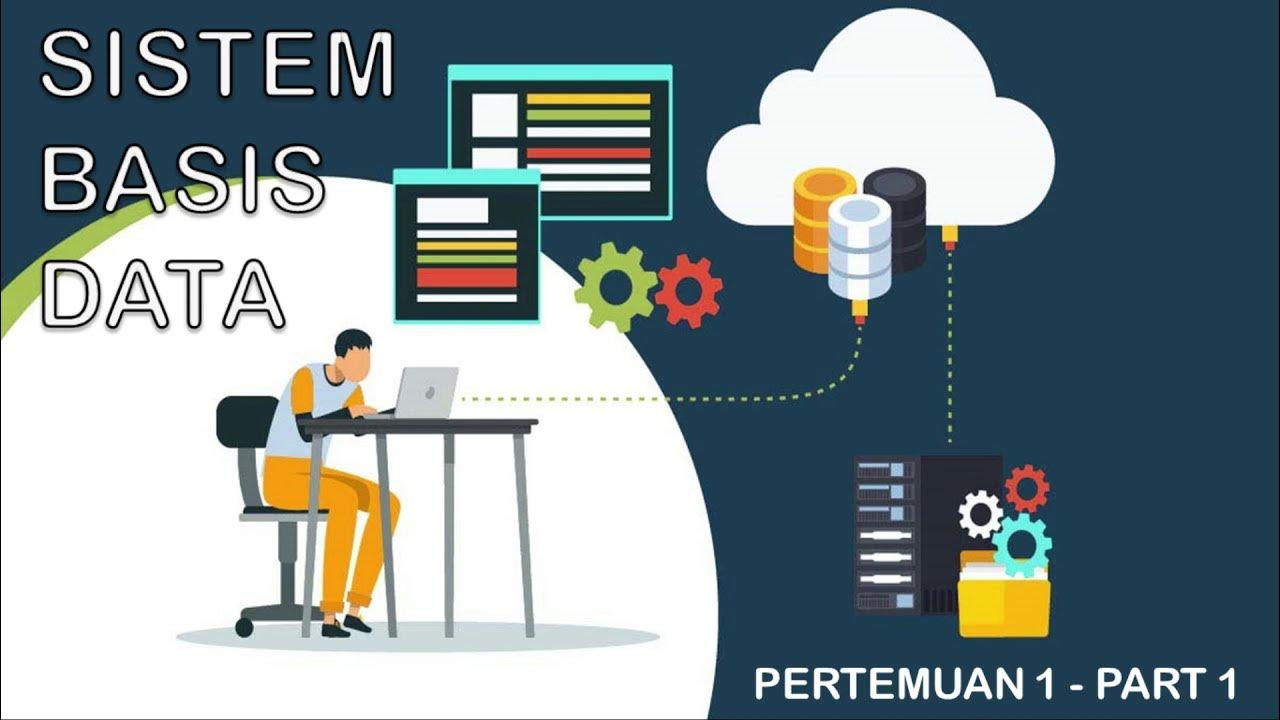Basis Data Part 1
Summary
TLDRIn this session, the speaker discusses the critical role of database systems within various applications, highlighting their significance in managing data effectively. Emphasizing the integration of different system components, the speaker explains how databases facilitate the storage, retrieval, and manipulation of information, specifically mentioning structured query language (SQL) and NoSQL databases. The talk also touches on hardware and software requirements, including operating systems and database management systems, providing insights into practical applications like institutional repositories and library management systems, making it relevant for students and aspiring developers.
Takeaways
- 😀 A database system is crucial for managing data in applications like websites and mobile apps.
- 😀 Metadata plays a significant role in storing and retrieving information within a database.
- 😀 A system is defined as an integrated set of components working together to achieve specific tasks.
- 😀 Different types of database management systems (DBMS) exist, including relational (SQL) and non-relational (NoSQL) databases.
- 😀 DBMS allows multiple users to access and manipulate data concurrently.
- 😀 Hardware, operating systems, and databases are essential components of any database system.
- 😀 User roles in database systems can vary, including regular users and administrators with higher privileges.
- 😀 The choice of operating system (e.g., Windows, Linux) affects how database systems are installed and run.
- 😀 Common database functions include insertion, updating, and deletion of records.
- 😀 Understanding the underlying hardware and software is vital for effective database management.
Q & A
What is the main focus of the discussion in the transcript?
-The main focus is on database systems, particularly the importance of metadata and how databases are integral to various applications.
How are databases related to different types of applications?
-Databases are crucial for applications such as desktop, web, and mobile, providing a structured way to store, retrieve, and manage data.
What role does metadata play in database management?
-Metadata provides essential information about data, enabling effective management, storage, and retrieval within a database.
Can you explain what a database management system (DBMS) is?
-A DBMS is a software system that enables users to create, manage, and manipulate databases, allowing multiple users and applications to access data simultaneously.
What are the two main types of databases mentioned?
-The two main types are relational databases (SQL) and non-relational databases (NoSQL), which differ in how they organize and relate data.
What are some examples of user roles within a database system?
-User roles include regular users, administrators with elevated privileges, and specific roles like librarians in a library management system.
How does hardware relate to database systems?
-Hardware provides the physical infrastructure necessary to support database operations, including servers, storage devices, and communication equipment.
What operating systems can be used for database management?
-Common operating systems include Windows and various distributions of Linux, such as Ubuntu, which is widely used for database applications.
What is the significance of user accessibility in database systems?
-User accessibility ensures that different roles can perform necessary functions, such as data entry, retrieval, and management, based on their permissions.
Why is it important to understand the components of a database system?
-Understanding the components helps in effectively designing, implementing, and maintaining a database, ensuring it meets organizational needs.
Outlines

This section is available to paid users only. Please upgrade to access this part.
Upgrade NowMindmap

This section is available to paid users only. Please upgrade to access this part.
Upgrade NowKeywords

This section is available to paid users only. Please upgrade to access this part.
Upgrade NowHighlights

This section is available to paid users only. Please upgrade to access this part.
Upgrade NowTranscripts

This section is available to paid users only. Please upgrade to access this part.
Upgrade NowBrowse More Related Video

Introduction to DBMS | RGPV Diploma CSE / IT 4th Sem 2nd Year

SISTEM BASIS DATA 1 (PART 1) - KONSEP DASAR, PRINSIP DAN TUJUAN BASIS DATA

Introduction of DBMS | Database Management System | Lec -01 Hindi

Bancos de Dados - Aula 01 - Visão geral sobre banco de dados e motivação

What is a Database Engine

Introduction To DBMS
5.0 / 5 (0 votes)